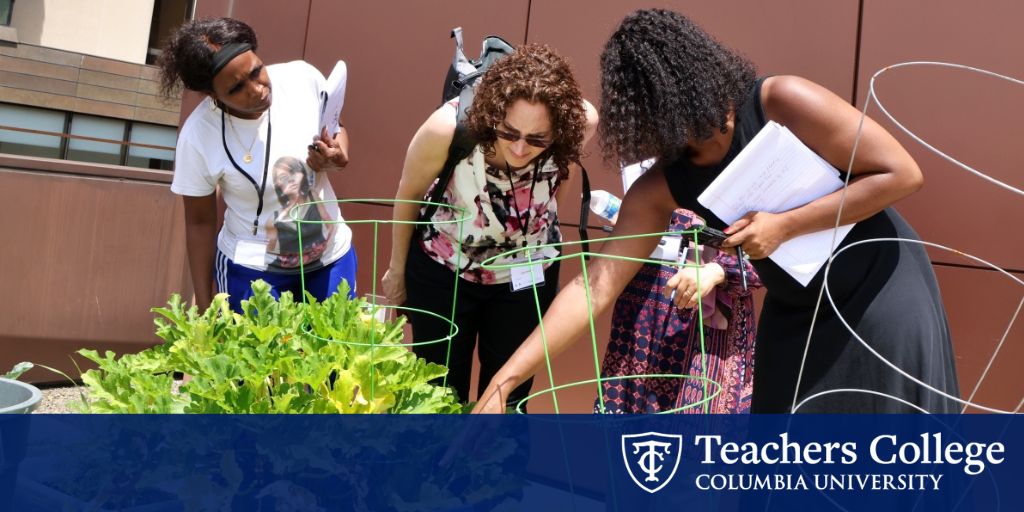The 2024 Summer Climate Institute at Teachers College in New York City brought together 40 middle school educators to delve into the critical topic of climate change education. This professional development program, hosted in partnership with the Center for Sustainable Futures, LEAP Center at Columbia University, and the Office of Energy and Sustainability in NYC Public Schools, aimed to equip teachers with the knowledge and tools to integrate climate education into their classrooms.
The week-long program immersed participants in practices of climate change fundamentals, interdisciplinary pedagogy, student engagement, and more. The Institute, funded by a $25 million National Science Foundation grant, is part of a larger initiative to enhance climate education in elementary, middle, and high schools. Teachers engaged in workshops, discussions, and hands-on activities to better understand how to incorporate climate science into various subjects, such as art education, English language arts, mathematics, social studies, and science.
One of the key challenges faced by educators is the extensive curricular goals they must meet while integrating climate change education. The Institute encouraged interdisciplinary practices, where teachers collaborated to align on integrating climate science across subjects. By working together, educators can create a more cohesive and impactful learning experience for students, fostering critical thinking and empowerment.
Another challenge addressed at the Institute was climate anxiety among students. Educators were provided with tools to help students identify and navigate their emotions related to climate change, promoting more effective discourse and a sense of agency. By using resources like the Climate Emotions Wheel, teachers can facilitate discussions that empower students to take positive action in the face of climate challenges.
Misinformation is another hurdle that educators must tackle when teaching about climate change. The Institute emphasized the importance of imparting tools for evaluating sources, particularly in social studies classes. By developing media literacy skills, students can better discern credible information from misinformation, enabling them to make informed decisions for the public good as citizens.
Networking and collaboration were highlighted as creative solutions to combat silos and isolation among educators passionate about sustainability. By building coalitions and sharing best practices, teachers can feel supported in their commitment to climate education. The Summer Climate Institute provided a platform for educators to connect, share experiences, and learn from one another, fostering a sense of community and collaboration.
Incorporating a culturally-inclusive approach to climate education is essential, especially in a diverse city like New York. Educators must acknowledge the racial and socioeconomic impacts of climate change to effectively engage and prepare their students. By addressing environmental racism and justice, teachers can create a more holistic understanding of climate issues and empower students to become future climate leaders.
The interdisciplinary approach to climate education aligns with Teachers College’s efforts to prepare teachers as critical first responders on the front lines of climate change. By equipping educators with the knowledge, skills, and resources to integrate climate education into their classrooms, the Institute aims to empower students to become agents of change in their communities and beyond.
As the Summer Climate Institute looks to expand its reach and impact, the collaboration between Teachers College, LEAP Columbia, and NYC Schools will continue to support educators in implementing climate education in their classrooms. By building a scalable and sustainable model, the Institute aims to reach more teachers across NYC schools and empower them to address one of the most pressing issues of our time.
In conclusion, the 2024 Summer Climate Institute at Teachers College served as a platform for educators to deepen their understanding of climate change education and explore creative ways to integrate it into their teaching practices. By fostering collaboration, addressing challenges, and promoting culturally-inclusive approaches, the Institute is paving the way for a more informed and empowered generation of students ready to tackle the climate crisis.

